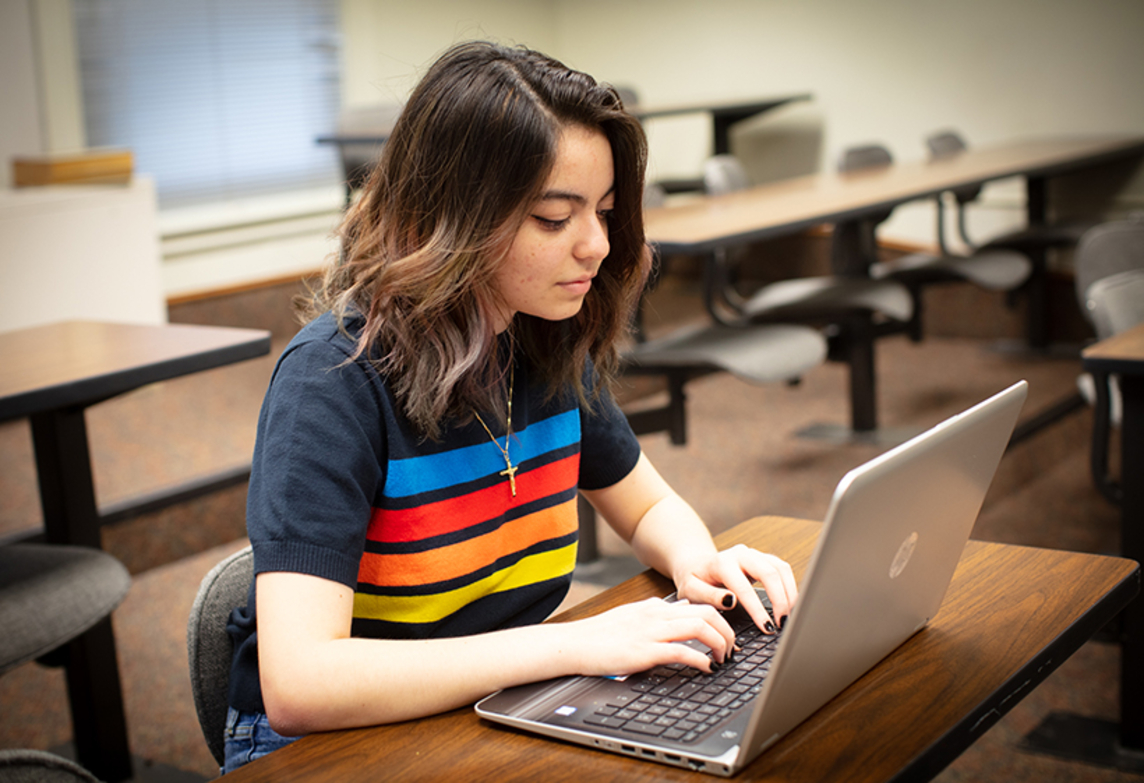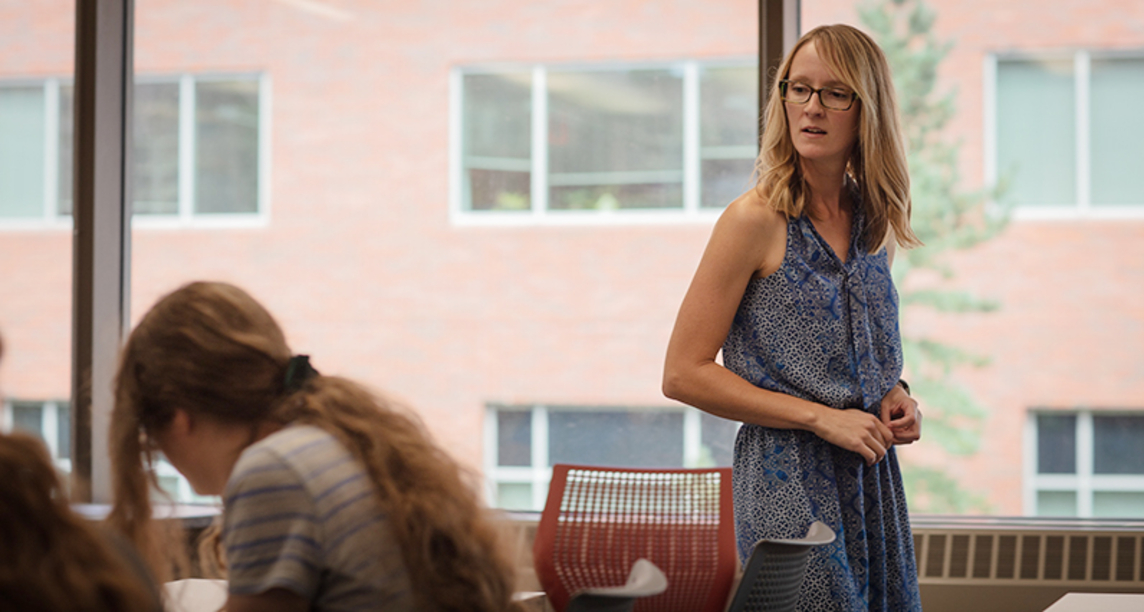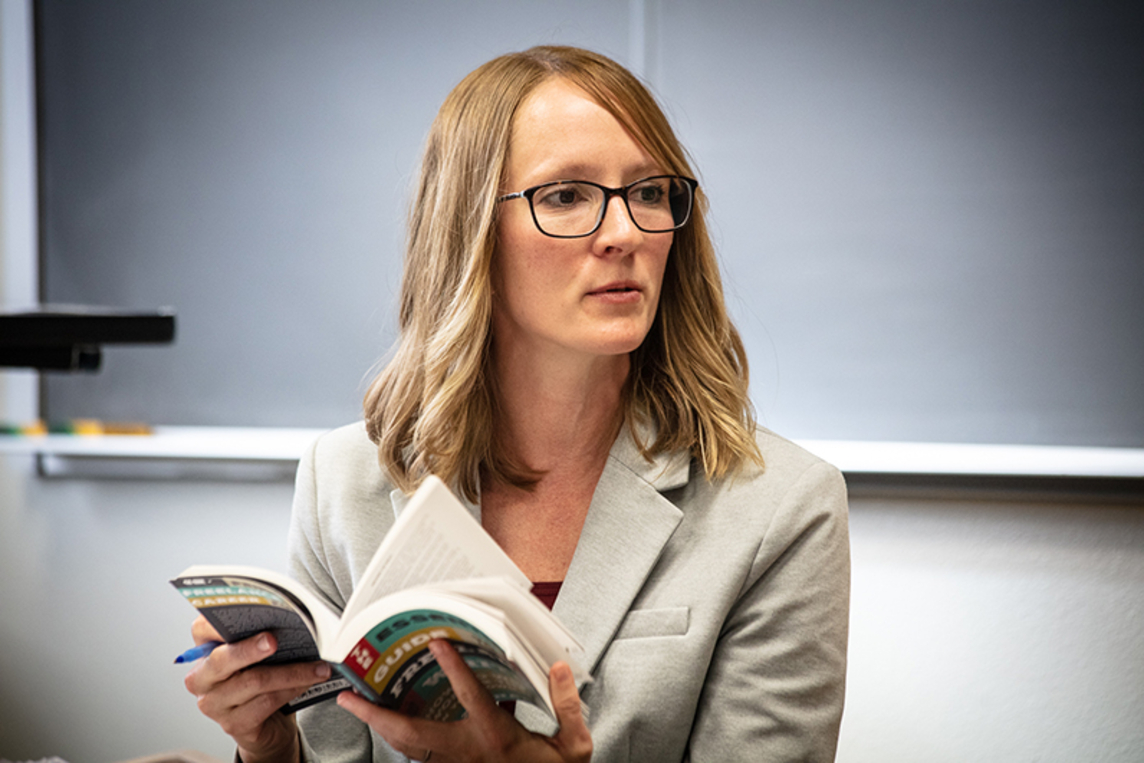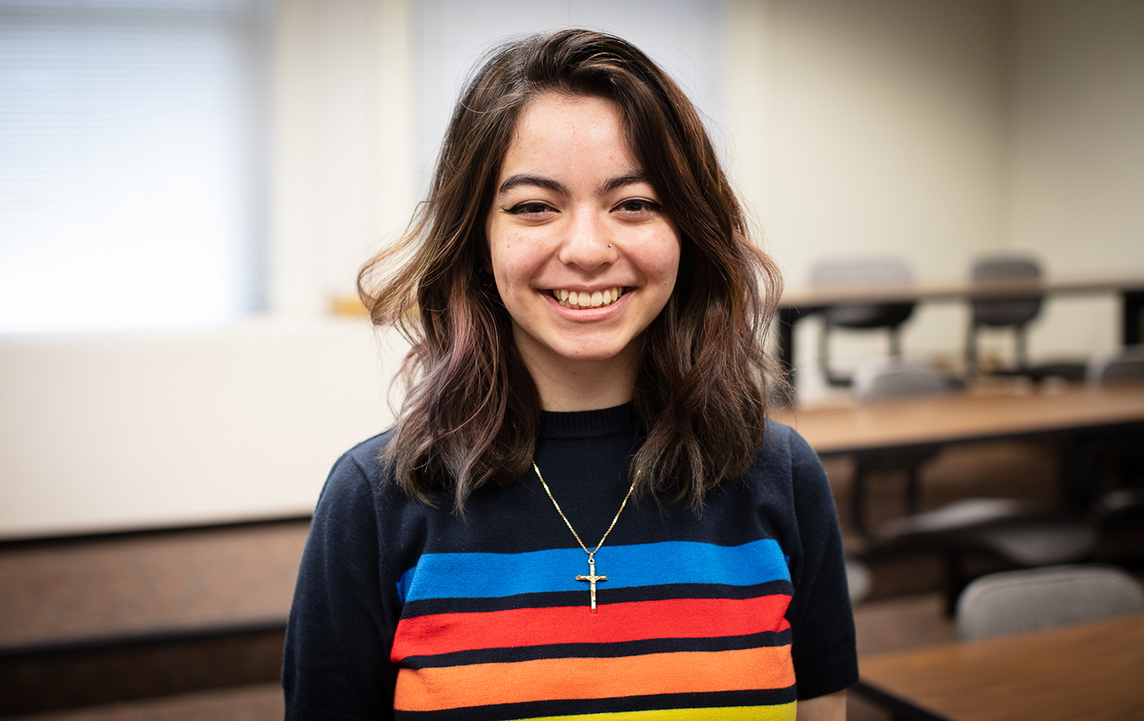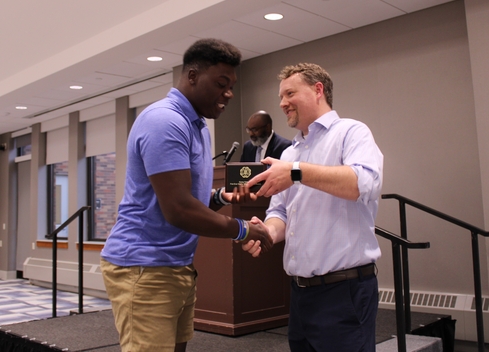Millikin student uses fellowship to learn the ins and outs of editing
By her junior year at Millikin University, Bella Hernandez was already immersed in English writing after discovering her passion to write stories. But by the end of her junior year, a unique opportunity came knocking where she could broaden her skills as an editor.
As a senior this past spring, Hernandez served as an undergraduate fellow for Dr. Julie Bates, assistant professor in the English Department, where she performed two roles as an editorial assistant for "Rhetoric Review," a peer-reviewed journal in rhetoric and writing studies published by Taylor & Francis, and as an intern with Millikin's Center for Publishing & Editing.
"I learned a lot—how to edit for clarity without taking over someone else's voice, how to be extra thorough when fact-checking, and how to research and familiarize myself with a topic so that I can be knowledgeable about what I'm editing," Hernandez said. "I didn't work with any writers directly, but I still learned a lot from the writers through the reviews I edited."
Bella Hernandez
Dr. Bates serves as the book review editor of "Rhetoric Review" and is responsible for all aspects of preparing book reviews for each issue of the journal.
"The fellow works with me to identify reviewers for new books released in the field, fact check reviews, and assist with all aspects of copy editing and proofreading the reviews from initial draft through to publication," Bates said. "It's a great way to gain editing experience and also become familiar with some of the research and conversations in the field."
Dr. Bates expanded the fellowship to have Hernandez work with the Center for Publishing & Editing, enabling her to gain additional experience with writing social media and blog posts; developing ideas for, recording, and transcribing the new Editing Minute podcast; and brainstorming other ways to further promote the Center and engage students with it. In addition to coming up with the name of the podcast, Hernandez also came up with episode topics.
"The podcast was a great experience. I was able to get comfortable talking off-the-cuff about a lot of really interesting topics, such as sensitivity reading and diversity and inclusion in editing," Hernandez said. "I had a lot of fun with my last episode on the podcast, as I got to reflect on the major things I've learned about editing while at Millikin."
Dr. Julie Bates
The fellowship was an opportunity for Hernandez, of Manhattan, Ill., to understand the influence editing has on an entire piece.
"Just one changed word can shift blame from one party to another, show one person as sympathetic or evil, can change a piece from offensive and insensitive to progressive. The editor has a lot of responsibility on their shoulders to make sure that the writer's intent and voice are clear and that the piece conveys the right message," she noted.
One of the underlying goals of the fellowship is to give students professional experience and practice publishing and editing so that they can take those experiences with them into any career they pursue.
"Editing is so important—not just in book, magazine, and journal publishing, but in all areas. Businesses and organizations across the board need quality editors. The skills students can gain with hands-on editing experiences, our Professional Editing class, and more at Millikin can take them far, even if they don't go on to be full-time editors," Bates said. "It's about valuing the power of language and what it can do in the world and thinking strategically about the best ways to communicate to reach our target audiences. Some of that can be learned by reading books on editing and being instructed on how to do it, of course, but as Bella learned through the fellowship and students in Professional Editing or those working on BURST and our many other student-run publications have learned, where you learn is by putting that knowledge into practice, by working with writing in context."
Dr. Bates says Hernandez is poised to do so many different things now that she has completed the fellowship and graduated from Millikin.
"She's already an incredibly talented creative writer, and what she has learned from the fellowship and Professional Editing class can benefit her directly in her writing," Bates said. "But after her experiences with editing this past year, she's also poised to do a lot of different things—become an editor for a magazine or nonprofit organization, become a freelance editor or sensitivity reader working with other fiction writers, edit for an indie or scholarly press. So many possibilities."
Hernandez added, "I think I've learned a lot about how to work with others to improve a piece and how to trust my instincts as an editor. I'm a better researcher, fact-checker, writer, and editor because of this opportunity."
This past spring semester, Dr. Bates wrapped up her second year serving as the Hardy Distinguished Professor of English. She is about to launch a website for the Center for Publishing & Editing, and with Bella's help, has set up Facebook and Twitter accounts to promote the Center. A new office for the Center was recently opened on campus (Shilling Hall, Room 211E), which offers space for Center interns and students to work on many publishing and editing projects and student-run ventures to meet and collaborate as well as space for Center faculty and community partners to meet.
